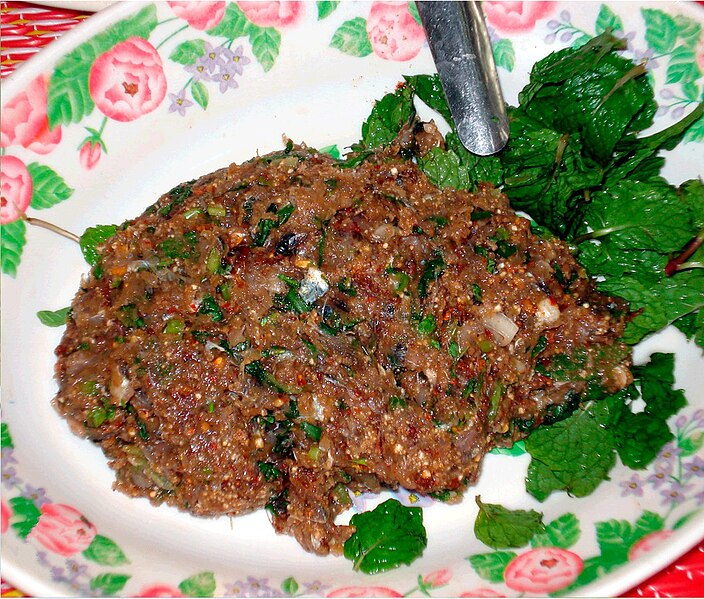Koi Pla, a popular traditional dish consumed in Thailand and Laos is said to be responsible for the deaths of around 20,000 people every year.
Considered a salad by the Lao people of Laos and Thailand’s Isaan region, Koi Pla consists of minced raw fish, lemon juice, herbs, and spices. As you might have guessed, the fish is the problematic ingredient in this dish, although technically, it’s the parasites living in the fish. Koi Pla is most commonly made with raw freshwater fish from the Mekong basin which are often infested with parasitic flatworms known as live flukes. These parasites have long been known to cause one of the most aggressive types of cancer known to man, cholangiocarcinoma, or bile duct cancer, which causes the deaths of around 20,000 people in Thailand alone.

Photo: Wikimedia Commons
“It’s a very big health burden around here,” Narong Khuntikeo, a liver surgeon at Khon Kaen University in Thailand, told Agence France-Presse back in 2017. “But nobody knows about this because they die quietly, like leaves falling from a tree.”
Khuntikeo, whose parents both died of duct cancer after a lifetime of eating Koi Pla, has spent many years traveling Thailand’s rural north-east and warning people about the dangers of consuming the cheap but dangerous dish. Unfortunately, the traditional fish dish is so popular in Thailand’s Isaan region that getting people to stop eating it is incredibly hard.
Some people will just say things like “Oh well, there are many ways to die,” while others claim that cooking the fish before adding it to the dish completely ruins the taste. Older generations who grew up with Koi Pla are much more reluctant to give it up, but doctors like Narong Khuntikeo hope that at least the younger generation will realize the danger they are exposing themselves to by eating it.
It is said that a single mouthful of Koi Pla is technically enough to cause bile duct cancer. Known as the “silent killer,” the disease has one of the lowest survival rates without surgery. Isaan, Thailand’s largest province, has the highest reported instance of bile duct cancer in the world as a result of the unwavering popularity of Koi Pla.
Dr. Khuntikeo conducted extensive testing among villagers in Thailand’s Isaan province and found that up to 80% of them had ingested live flukes, and while not all of them were suffering from duct bile cancer, the risk of developing the deadly condition further down the line is high.












